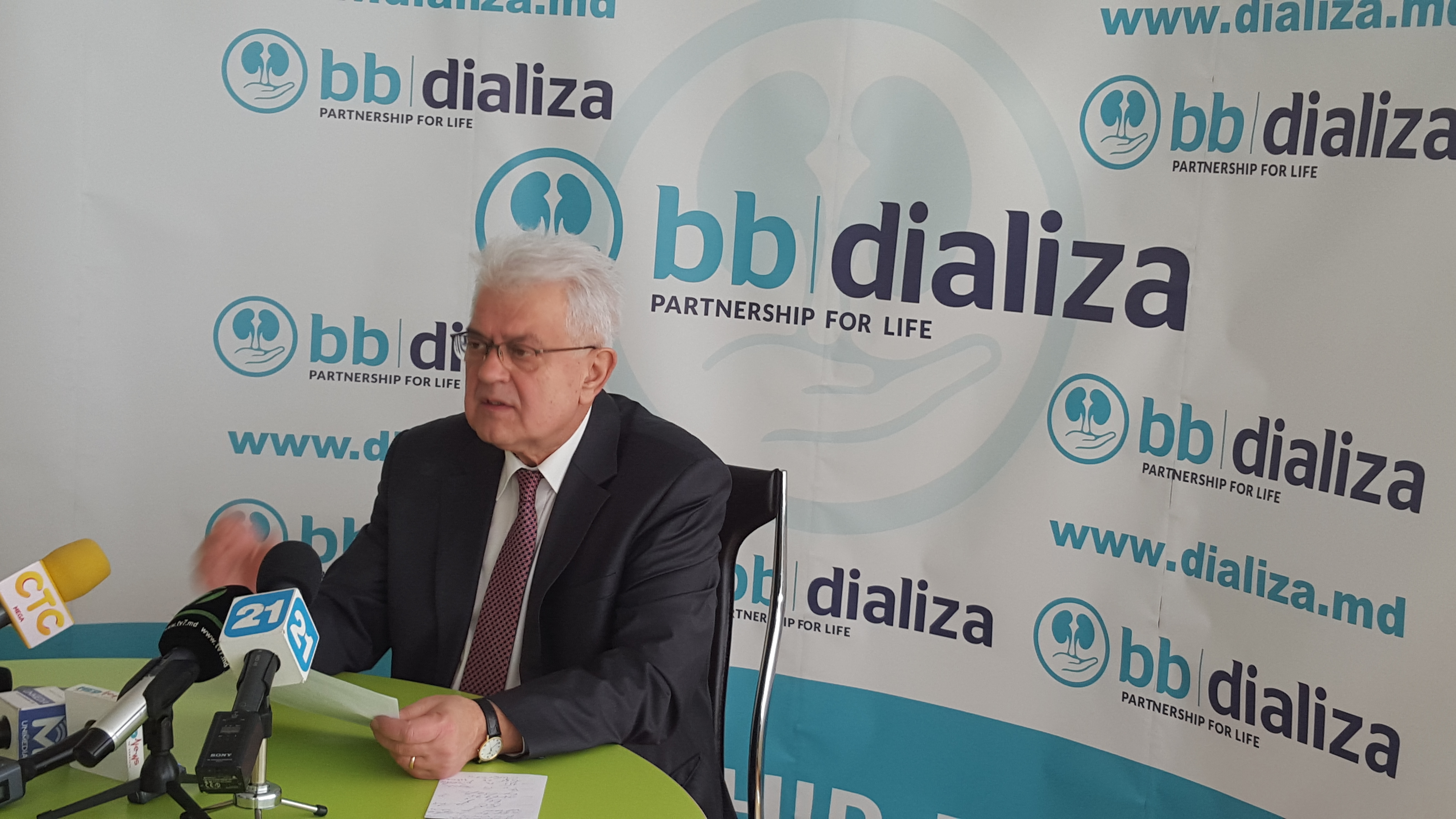Interview with Mr. Adrian Tanase, Head of Urology and Nephrology Surgery Department of the Medical University “N. Testemiţanu ” of the Republic of Moldova, President of the Association of Urologists of Moldova, Doctor of Medicine, professor, expert-consultant of “BB-Dialysis” company.
When noticed that the dialysis service was stagnating, he supported the idea of bringing in Moldova the experience of European countries by opening private centres. So, at present, approximately 200 patients with chronic renal insufficiency, in the final stage, (when the kidneys practically stopped functioning) benefit from high quality dialysis services in one of the largest dialysis centres in Europe. It was recently opened in Chisinau and its construction was conducted after the feasibility study prepared by the founder of dialysis service in Moldova, Professor Adrian Tanase.
– Mr. Professor, how the dialysis service evolved in Moldova and what was needed for the establishment of public private partnership in dialysis services?
35 years ago the first section of dialysis with 8 ex- Soviet devices was opened at the Republican Clinical Hospital and later on other sections followed. However, the first dialysis in Moldova was performed 55 years ago and also at the Republican Clinical Hospital. To do the dialysis, as well as to perform transplants, knowledge is needed, which we could gain merely abroad. We have implemented technologies, have opened new sections, but during the last years, a stagnation was observed. The State had no more money to develop the dialysis service. Then I developed a feasibility study for the expansion of the dialysis by establishing a Public Private Partnership. In Romania a private dialysis system is successfully implemented.
– Recently, in Chisinau, the first dialysis centre was inaugurated, opened within the public private partnership project for dialysis services in Moldova – how can you appreciate it? What does it mean for you?
The Dialysis Centre looks like a perfect Centre, a European one, corresponding to all modern requirements. It might be as an example for state institutions. For me personally and for all specialists in the field, it is a new stage, the stage of implementation of public private partnership in support of public institutions in the treatment of renal patients. We would like to extend the network of dialysis centres in the country so that the services come closer to patients’ home.
– Unlike other countries, where there are National Renal Registers and there is a strict evidence of patients included in dialysis, there is no similar mechanism in Moldova. Why is it important to create such a Register in Moldova?
The entire international statistics is based on registers. You can’t get some indices, if there is no evidence. In a field like dialysis and transplantation, the existence of a register is crucial. Every patient must be registered. It is basic to be implemented in Moldova but because it requires efforts, computerization, software applications, costs, rather significant, etc. – the register is still expected to come and due to its absence we can’t be part of international statistics in dialysis services and transplantation. To find out how many patients we have, we need each time to call the dialysis sections and request the necessary information.
– Nevertheless, what is still the actual number of persons needing to be included in dialysis?
In Romania, to 1 ml of population this number is 600 people. The same number should be in our country, but in Moldova of 1 million population only 157 persons are included in dialysis. We need to create new sections and provide a sufficient number of dialysis places.
– The World Kidney Day is celebrated on March 10 – what message do you have for patients and also for the persons, involved in the treatment of these diseases?
You have to know that for the prevention and treatment of kidney diseases not only the physician but also the patient, family, the whole society are responsible – we must strengthen our efforts to achieve more successes.
Thank you.



